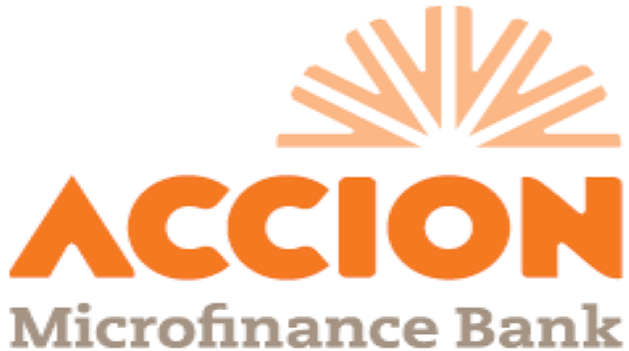E-Financial
NDIC Liquidates 425 Banks in 22 Years

Nigeria Deposit Insurance Corporation (NDIC) at the weekend said it participated in the liquidation processes of 425 financial institutions in the country since it was established in 1988.

A breakdown of the 425 liquidated banks during the period showed that 51 of them were Deposit Money Banks, 325 Micro Finance Banks and 51 Primary Mortgage Banks.
Mr. John Abiodun, assistant director, Insurance and Surveillance Department of the NDIC made the revelation at the 2020 Finance Correspondents Association of Nigeria forum in Abuja.
According to him, the Corporation has successfully paid in full the deposits of customers of 18 DMBs that were both insured and uninsured by leveraging on its efficient and diligent liquidation activities and procedures.
He also revealed that settlements have been put on hold for depositors of Fortune International Bank, Triumph Bank and Peak Merchant Bank due to litigation challenging the revocation of their operating licence.
He lamented that the effectiveness of the NDIC’s efforts in failure resolution had been hampered by a number of challenges.
Some of these challenges Abiodun listed include; delays in revocation of the licenses of terminally distressed banks, depositor and creditor apathy and ignorance, delay in filing claims, and recovery of debts owed the failed banks”.
He said the NDIC is also concerned about the legal actions of owners of closed banks; protracted litigations; disposal of low quality physical assets of the closed banks and provision of timely liquidity support.
Abiodun gave some of the causes of bank failure to include insider abuse, abusive ownership and weak board of directors, weak corporate governance, poor risk management process, inadequate capital, weak regulatory and supervisory measures as well as economic and political factors.
He said, “Liquidation of a failed bank through revocation of license becomes the final bus stop when all efforts made by the shareholders and regulatory authorities do not yield the desired result.
“Once a bank’s license is revoked, NDIC takes over for liquidation.”
Abiodun explained that before the corporation liquidates a bank, it looks out for deficiencies observed known as early warning signals that raise red flags.
Some of the early morning signals according to him are aggressive growth and excessive competition for deposits, shareholder’s squabbles, frequent changes in management and ownership, change in major business lines.
Others are failure to meet the minimum Capital Adequacy Ratio of ten per cent, rising non-performing loans to total credit ratio of above five per cent, failure to meet the prevailing minimum liquidity ratio of 30 per cent, high total expense to total income ratio and high incidences of fraud.
“NDIC has effective resolution is a series of systemic action designed to end a bank’s distressed condition and it is aimed at ensuring minimum disruption to the payment system, speedy payment to insured depositors and quick realization of assets for the benefits of uninsured depositors and creditors.
“The adoption of various bank problem resolution options had helped to enhance confidence in the nation’s banking system thereby promoting financial system stability,” he said.
E-Financial
Zenith Banks Leads as 8 Banks Suffer N156Bn Impairment Charges

Eight leading Nigerian banks collectively set aside N156 billion as impairment charges on their credit and financial assets, marking a significant financial impact amidst a challenging economic environment, in the opening quarter of 2025.

Known commonly as loan losses or credit impairments, these charges highlight the banks’ defensive measures against risks arising from inflation, naira depreciation, and tightened liquidity affecting consumers and businesses alike.
The level of impairment varied considerably across institutions, reflecting divergent risk appetites and credit management practices.
Zenith Bank led with the highest provision of N49.38 billion, an 11.8 percent reduction from the previous year’s N55.97 billion.
This decline may suggest enhanced asset quality or more rigorous loan recovery tactics.
Broken down, loans and advances contributed N35.95 billion to impairments, while investment securities and treasury bills added N7.1 billion and N2.16 billion respectively.
Despite heavy provisioning, Zenith recorded a notable 20.7 percent increase in post-tax profit, soaring from N258.34 billion to N311.83 billion.
Similar trends emerged at First HoldCo, which posted N37.25 billion in impairment (down 11.2 percent), driven mainly by loans and advances provisions of N41.23 billion.
Offsetting this were write-offs and reversals that mitigated losses.
First HoldCo’s profit, however, fell to N171.10 billion from N208.11 billion.
Access Holdings and Guaranty Trust Holding Company also demonstrated reduced impairment charges, indicating stronger credit monitoring.
Access’s net provision dropped 4.5 percent to N21.77 billion, while Guaranty Trust’s impairment stabilized near last year’s N13.42 billion figure.
Yet, Guaranty Trust’s profit plunged 43.6 percent to N258.03 billion, a striking contrast to other banks’ profit growth.
On the other hand, United Bank for Africa (UBA) faced a staggering 332.2 percent surge in impairment, from N3.28 billion to N14.18 billion—pointing to amplified credit risks possibly driven by external economic pressures.
Nonetheless, UBA recorded a 33.1 percent profit uptick to N189.84 billion.
FCMB’s impairment charge fell notably by nearly 60 percent to N9.52 billion, aided by significant recoveries of previously written-off loans, boosting its profit to N32.23 billion.
Meanwhile, Fidelity Bank and Wema Bank posted sharp rises in impairment—285.8 percent and 64.7 percent increases respectively—reflecting heightened write-downs that underscore growing risk exposure amidst portfolio expansions.
Overall, while the cumulative impairment charge diminished by 5.2 percent compared to Q1 2024, individual bank results were mixed, embodying the varied strategies and external pressures in Nigeria’s banking sector.
E-Financial
SEC Flags FF Tiffany as Ponzi Scheme

Securities and Exchange Commission (SEC) has revealed plans to commence investigation into the activities of an entity operating under FF Tiffany, allegedly running a fraudulent investment scheme that has defrauded citizens.

A statement by SEC on Tuesday in Abuja said preliminary information revealed that the scheme, which promised investors unusually high and unrealistic returns, had resulted in the loss of several billions of naira.
The SEC said it viewed the activity as a threat to investor confidence and the overall integrity of the financial system.
The commission assured the public that it was working closely with law enforcement agencies and other relevant bodies to bring everyone involved in the unlawful operation to justice.
According to SEC, those found culpable will be prosecuted in accordance with Investment and Securities Act (ISA) and regulatory provisions.
SEC reiterated its earlier warnings to the general public to desist from engaging in Ponzi or unregistered investment schemes that promised guaranteed or exaggerated returns.
”These schemes are not registered with the SEC and do not offer investor protection under the law.
“The commission is currently investigating 79 schemes and will make a statement on its findings at the conclusion of the investigation,” the SEC said.
The commission encouraged investors to conduct due diligence and verify the registration status of any investment firm or product by visiting the SEC website or contacting the commission directly through official channels.
SEC said it remained committed to its mandate of protecting investors, ensuring fair practices, and maintaining confidence in Nigeria’s capital market.
E-Financial
AccionMonie App to Empower Low-Income Households

Accion Microfinance Bank has unveiled AccionMonie, a next-generation digital financial services platform aimed at empowering individuals, micro, small, and medium enterprises (MSMEs), as well as low-income households across Nigeria.

Speaking at the official launch in Abuja, Chief Executive Officer of Accion MfB, Taiwo Joda, described the introduction of AccionMonie as a significant milestone and a testament to the bank’s culture of innovation, designed to meet the evolving needs of its customers.
“At Accion Microfinance Bank, we believe in the potential of every MSME to drive inclusive economic growth. That is why we are committed to empowering them with the financial support they need to grow, innovate, and make a lasting impact in their communities and beyond,” Joda said.
He added that the app provides instant access to essential services including loans, savings, and other forms of financial support.
According to Joda, AccionMonie is a strategic component of the bank’s “Always There to Lend You a Hand” campaign, which underscores its commitment to small business development and the economic upliftment of underserved households. The campaign positions Accion MfB as not only a financial institution but also a trusted partner in its customers’ journey to prosperity.
Highlighting the economic role of MSMEs in Nigeria, he noted that with an estimated 37 million MSMEs, the sector accounts for 86% of employment and contributes 48% to Nigeria’s Gross Domestic Product (GDP). However, these enterprises continue to face major challenges such as limited access to finance, inadequate infrastructure, and an unfavourable business environment.
Also speaking at the launch, the bank’s Chief Commercial Officer, Stephen Olalere, said the combination of AccionMonie and the bank’s expansive network of over 74 branches across 12 states will help bridge the gap in financial service delivery to small businesses.
“The platform’s user-friendly features are designed to simplify payments and offer vital support to businesses and individuals alike,” he said.
Paul Ehiagbonare, Chief Digital Officer of the bank, described the launch as a bold step toward digital leadership and financial empowerment.
“For us, AccionMonie reflects customer empowerment through digital tools and technologies. It offers a range of customer-focused features designed to promote financial inclusion,” he said.
One of its standout features is Save2Loan, which allows users to save between ₦50,000 and ₦250,000 over a 90-day period and become eligible for a loan worth twice their saved amount. This, Ehiagbonare explained, will help promote a savings culture while enhancing credit access.
In addition, customers can conveniently fund their AccionMonie accounts using any debit card, eliminating the need for physical visits or long queues in banking halls.

 Broadcasting2 days ago
Broadcasting2 days agoNigeria Week Ahead: Inflation, Oil and Naira in focus

 News2 days ago
News2 days agoEFCC: Accusations Against Our Chairman Are Baseless and Misleading

 Telecom1 day ago
Telecom1 day agoMTN Nigeria Targets $1Bn Cloud Market with Largest Modular Data Centre

 Telecom1 day ago
Telecom1 day agoNCC Introduces N10m Licence Fee for Bulk SMS Service

 E-Business1 day ago
E-Business1 day agoFirm Highlights Top Risks of Quantum Computing

 General News1 day ago
General News1 day agoAM Best Reaffirms Stable Outlook for Cyber Insurance Market

 General News1 day ago
General News1 day agoBurna Boy Distances Himself from Meme Coin, Labels Crypto as Fraud

 General News1 day ago
General News1 day agoWoodhall Capital and Partners Launch ₦1.5Bn Fund

























